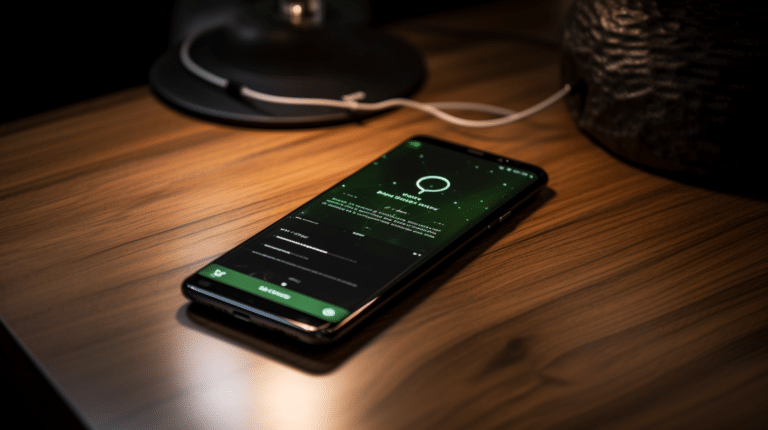In the world of internet security and privacy, Virtual Private Networks (VPNs) have become increasingly popular tools to protect users from prying eyes and prevent personal data leaks. While many VPN services come with a price tag, a growing number of users are turning to free VPNs to safeguard their online experience. The fundamental question that arises is whether the no-cost alternatives can offer a satisfactory level of security and dependability for their users.
Free VPNs, like their paid counterparts, work by creating secure and encrypted connections that route users’ data through remote servers. This encryption not only masks the user’s IP address but also helps in accessing geo-restricted content and keeping online activities private. However, it is essential to weigh the pros and cons of free VPN services, considering their possible limitations and risks associated with their usage.
Key Takeaways
- Free VPNs can provide a basic level of security and privacy for internet users
- The effectiveness of free VPNs may vary in terms of features and potential risks
- Noteworthy free VPN services might offer enhanced security features compared to others
Understanding Free VPNs
What is a Free VPN?
A free VPN is a service that provides users with a virtual private network without any cost. These VPN services serve as a tool to ensure privacy by encrypting your online data and hiding your IP address while browsing the internet. Several free VPN options exist in the market, catering to basic privacy requirements.
However, it is essential to be cautious when choosing a free VPN service, as the quality, safety, and features may differ significantly from paid VPN services. Some free VPNs may also come with limitations in terms of bandwidth, server selection, or even advertising intrusion. Additionally, there have been instances of free VPNs being unsafe and untrustworthy.
When selecting a free VPN service, it’s crucial to research the provider’s reputation, track record, and privacy policy. This will ensure that you choose a suitable and secure option for your internet browsing needs. By opting for a credible free VPN, you can still benefit from basic privacy and security features without incurring any costs.
Effectiveness of Free VPNs
Connection Speed and Stability
Free VPNs often have a limited number of servers compared to paid services, which can result in slower connection speeds and lower stability due to congestion. Additionally, these servers might be located in fewer countries, leading to restrictions when accessing geo-specific content. While some free VPNs may offer acceptable speeds for casual browsing, those looking to stream high-quality video, engage in online gaming, or participate in large data transfers could face limitations.
Security and Privacy Measures
A crucial aspect of any VPN service is its ability to provide security and privacy protections. Free VPNs often fall short in these areas compared to paid alternatives. Many free services lack robust encryption, potentially enabling unauthorized access to your data. Additionally, some free VPNs may collect and sell user information or implement weak privacy policies, compromising your online privacy.
It’s essential to research and select a free VPN that prioritizes user security and maintains a transparent privacy policy. While free VPNs may have their limitations, using a reputable service could still offer a basic level of protection and help you maintain your online privacy.
Free vs Paid VPNs
Feature Comparison
Free VPNs and paid VPNs come with different sets of features. It’s essential to consider these differences to make an informed decision.
Free VPNs:
- Limited data usage: Often, free VPNs have data limits, which may not be ideal for regular or heavy usage.
- Slower speeds: As free VPN services have fewer resources, they may experience overcrowding, resulting in slower connection speeds.
- Limited server locations: Free VPNs usually offer a small number of servers for users to choose from, which can lead to congestion and slow connections.
- Basic security features: Free VPNs often provide lower encryption levels such as 128-bit encryption.
Paid VPNs:
- Unlimited data usage: Paid VPNs typically don’t have data caps, allowing users to enjoy unlimited browsing and streaming.
- Faster speeds: With higher-quality infrastructure and more server locations, paid VPNs can generally offer faster connection speeds.
- More server locations: A premium VPN often provides a wide range of server locations, allowing better performance and the ability to bypass geo-restrictions.
- Advanced security features: Paid VPNs usually offer top-level encryption like 256-bit encryption and additional security features, such as a kill switch and DNS leak protection.
Pricing and Value
In terms of pricing, the main difference between free and paid VPNs is, obviously, the cost. Free VPNs are available at no charge, while paid VPNs require a subscription fee.
Free VPNs make their money in various ways, like displaying ads or selling user data to third parties. These methods may result in privacy and security issues. On the other hand, paid VPNs rely on subscription fees to maintain their infrastructure and support, ensuring a safer and more reliable service.
While free VPNs may be adequate for casual users, those who prioritize security, privacy, and performance will find more value in paid VPNs. Moreover, premium VPNs usually offer a 30-day money-back guarantee, allowing users to test their service before committing to a subscription.
Potential Risks of Free VPNs
Data Logging and Privacy Breach Risks
Free VPNs may pose significant risks to your privacy and security. One major concern is that free VPNs often resort to data logging, collecting information about your browsing habits and internet activity. Some may even sell this data to third parties such as advertisers and marketing agencies, jeopardizing your privacy.
Another issue with free VPNs is that they may not adequately protect your data from breaches and leaks. Many free VPN providers lack the resources to properly secure their services, leaving users’ personal information vulnerable to cyber-attacks and unauthorized access.
Malware and Advertising Concerns
Using a free VPN service can expose you to increased malware and advertising risks. Some free VPNs may inject ads into your browsing experience to generate revenue or even host malicious software that can harm your device and compromise your security.
Furthermore, free VPNs often allow advertisers to track and profile your online activities for targeted marketing purposes. This is because free VPN providers may lack the stringent privacy policies and secure infrastructure of reputable paid VPN services.
To sum up, while free VPNs can provide a basic level of privacy and security, they often come with several potential risks that may outweigh the benefits. It is essential to weigh the risks and benefits of using a free VPN service and consider opting for a trusted paid VPN service to ensure your online privacy and security.
Usage Specifics of Free VPNs
When considering free VPNs, it’s important to be aware of their limitations and how they can be used for specific purposes. In this section, we will discuss the usage scenarios for free VPNs in terms of streaming and torrenting.
Free VPNs for Streaming
Free VPNs can sometimes be useful for accessing geo-restricted content, such as websites and occasionally streaming services. However, free VPNs often come with limitations, such as bandwidth caps, slower connection speeds, and a limited number of server locations. This makes them less reliable at bypassing restrictions on popular streaming platforms like Netflix, which aggressively blocks known VPN IPs.
Some free VPNs may still provide access to certain streaming services, but the overall experience might not be as smooth or reliable as with a premium VPN. In addition, it’s worth noting that using a VPN to access geo-restricted content on streaming platforms may violate the platform’s terms of service, potentially resulting in account penalties.
Free VPNs for Torrenting
Free VPNs are generally not recommended for torrenting and Peer-to-Peer (P2P) traffic. For effective torrenting, VPNs need to provide fast download/upload speeds, a large number of server locations, and a clear no-logging policy to ensure user privacy. However, most free VPNs have bandwidth limitations, fewer servers, and may lack a solid commitment to user privacy.
When torrenting, it’s crucial to maintain privacy and security to avoid potential legal and copyright issues. Free VPNs, due to their limitations, can put users at risk by exposing their activities and personal information to third parties. It’s worth investing in a paid VPN that offers robust P2P support, a clear privacy policy, and sufficient bandwidth for efficient torrenting.
In conclusion, while free VPNs might be useful in specific scenarios, their limitations make them less ideal for streaming and torrenting. It’s generally better to opt for a paid VPN service that offers better features and performance for these purposes.
Noteworthy Free VPN Services
- Hide.me: offers a reliable free VPN service with a solid reputation for its security features. With servers in several locations, it allows users to access restricted content and provides a good speed for basic browsing. However, its data limit of 2GB per month may not be suitable for heavy users.
- ProtonVPN: is another popular free VPN service, known for its focus on privacy and security. It offers unlimited data usage and doesn’t log any user activity, making it a strong choice for privacy-conscious individuals. The free version has servers in three countries but might have slower speeds compared to paid plans.
- Windscribe: is a feature-rich free VPN with a generous data allowance of 10GB per month. It offers servers in over 10 countries, ad-blocking, and P2P supported, making it a great option for occasional use. Unfortunately, its free plan doesn’t include streaming-optimized servers, which limits its utility for streaming purposes.
- TunnelBear: is a user-friendly free VPN with a cute and engaging interface. It might be less feature-packed than some of the other options mentioned here but offers a simple solution for casual VPN users. The downside is its low data allowance of just 500MB per month, making it unsuitable for heavy usage or streaming.
- Hotspot Shield: is a well-known VPN provider with a free version available. It has a simple and easy-to-use interface, which makes it popular among beginners. The free version has a daily data limit of 500MB and has access to one server location. This VPN might be ideal for someone who requires light usage.
- PrivadoVPN: is a newcomer in the VPN industry, offering a free plan with 10GB of data per month. With a seamless interface and servers in twelve countries, it has the potential to provide a good browsing experience. It also focuses on user privacy and security, making it worth considering.
Overall, these notable free VPNs can provide users with security and privacy during online activities. However, it’s essential to choose one that aligns with your specific needs, as each service has its own limitations and capabilities.
Enhanced Security Features
Importance of Encryption
Encryption is a crucial aspect of any VPN service. It ensures that your data remains secure and unreadable to third parties, even if they manage to intercept it. One of the industry-standard encryption protocols is AES-256, which offers a high level of security. Free VPNs can sometimes provide effective encryption, but it’s important to research and select a provider that uses strong and up-to-date encryption methods to prevent data leaks and support web browsing privacy.
Understanding Split Tunneling
Split tunneling is another valuable feature to look for in a VPN. It allows you to direct certain data traffic through the VPN connection, while other data travels through your regular internet connection. This can help maintain a balance between security and performance, as not all data requires the same level of protection or speed. Some free VPNs may offer split tunneling, but it is essential to be cautious and make sure the feature works effectively, without compromising your security.
VPN Kill Switch
A VPN kill switch is a vital security feature that prevents your internet connection from being exposed if the VPN connection drops unexpectedly. This can help avoid accidental data leaks and maintain your privacy, even if there are temporary connection issues. While some free VPNs may include a kill switch in their features, it’s crucial to verify that it works reliably and promptly activates when needed. Ensuring that your chosen VPN has a functional kill switch can enhance safety and preserve your browsing anonymity.
Conclusion
Free VPNs can provide a basic level of security and privacy for users who are not looking for a comprehensive solution. They can be helpful in accessing geo-restricted content and enabling users to browse the internet with a degree of anonymity. However, it is essential to choose a trusted and reputable free VPN to ensure minimal risks associated with data privacy.
While free VPNs can offer limited benefits, paid VPNs generally offer stronger security and broader features. A good paid VPN service will not track user activity for marketing purposes or enforce ads and connection restrictions. If maintaining a high level of privacy and security is critical to you, investing in a paid VPN service could be a better choice.
In summary, using a free VPN can be a viable option for those who need a basic solution with minimal features. However, for users seeking more robust security and regular VPN use, a paid VPN service would be a better choice. As with any online service, it is essential to research different VPN providers and their offerings to make an informed decision that suits your needs and preferences.
Frequently Asked Questions
Are free VPNs safe to use?
Free VPNs can provide a basic level of privacy and security, but they may not offer the same high level of protection as paid VPNs. Some free VPNs may also sell your data to third parties or display ads, which could lead to privacy concerns. To ensure the safety and security of your connection, it’s recommended to research and choose a reputable free VPN or consider an affordable paid option.
How reliable are free VPNs?
The reliability of free VPNs varies depending on the provider. While there are some decent free options available, they often come with limitations, such as slower speeds, fewer server locations, and restricted features. Paid VPNs generally offer a more reliable experience, with better performance and more functionality.
Can free VPNs provide unlimited data?
Most free VPNs impose data caps or usage restrictions, which may not be suitable for users who require a lot of bandwidth for streaming or downloading. Some free VPNs may also throttle your speeds after reaching a certain data limit. For unlimited data and faster speeds, a paid VPN subscription is usually the better choice.
What are the best free VPNs for different devices?
The best free VPNs for different devices can change over time, as providers update their offerings and new services emerge. Some popular free VPNs include Hotspot Shield for Windows and macOS, TunnelBear for iOS and Android, and Windscribe for Linux. However, it’s essential to research each provider to ensure compatibility and the performance you require.
Do free VPNs have speed limitations?
Free VPNs often have speed limitations due to the restricted resources allocated to them. This can result in slower download and upload speeds, as well as a longer time for connecting to websites or servers. Paid VPNs typically offer faster and more stable connections, as they invest in better infrastructure and server networks.
How do free VPNs compare to paid ones?
While free VPNs can be useful for casual users, they often come with drawbacks, such as limited data allowance, slower connection speeds, and fewer server locations. Paid VPNs, on the other hand, provide more extensive server networks, faster speeds, better encryption, and customer support. For a more secure and reliable VPN experience, it’s worth considering investing in a paid subscription.






